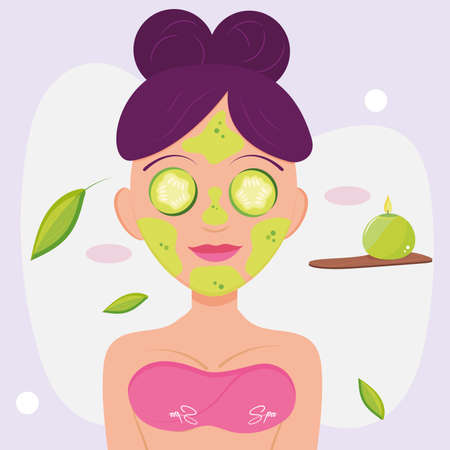Understanding Anxiety Through a British Lens
In the heart of Britain, anxiety often takes on subtle and uniquely local forms. The traditional British value of the stiff upper lip—that quiet resilience in the face of adversity—can shape how individuals experience and express their worries. While this cultural norm encourages composure and self-control, it can sometimes lead to people suppressing emotions or feeling unable to share their struggles openly. Social etiquette in the UK, with its emphasis on politeness and reserve, may further reinforce these tendencies, making it challenging for many to seek support or articulate their inner turmoil. Within British society, anxiety might manifest as persistent unease, a fear of causing inconvenience, or an overwhelming sense of responsibility to maintain harmony. Recognising these cultural nuances is essential in understanding how anxiety weaves itself into daily life across the UK—and why mindfulness, when rooted in familiar traditions and social contexts, can offer a gentle yet effective path towards balance and wellbeing.
Foundations of Mindfulness: Western Wisdom Meets Eastern Traditions
Mindfulness, as practised in the UK today, is a harmonious blend of ancient Eastern philosophies and modern Western wisdom. Rooted in Buddhist teachings and Traditional Chinese Medicine (TCM), mindfulness was originally developed to cultivate awareness and balance within the mind and body. Over time, these principles have merged with British cultural values—such as pragmatism, resilience, and community spirit—giving rise to a unique approach to coping with anxiety.
Integration of East and West: A UK Perspective
In Britain, mindfulness is not only seen as a meditative practice but also as a practical tool for everyday life. While TCM emphasises the interconnectedness of mind, body, and environment, Western psychology often focuses on cognitive behavioural techniques. The integration of these traditions has enriched the way mindfulness is understood and applied in British society.
Comparing Approaches: East Meets West
| Eastern (TCM & Buddhist) | Western (UK Context) |
|---|---|
| Focus on Qi (energy flow) and holistic balance | Emphasis on mental health and emotional regulation |
| Meditation, breathwork, and acupressure points | Cognitive behavioural therapy (CBT), guided relaxation |
| Harmony with nature and seasonal cycles | Integration with local culture—gardening, walks in nature reserves, tea rituals |
| Mind-body unity for resilience against anxiety | Community support groups and NHS-endorsed mindfulness programmes |
The British Adaptation of Mindfulness Practices
British mindfulness draws from both schools of thought. For example, mindful walking—a cherished activity in the UK countryside—echoes TCM’s belief in connecting with nature while also serving as a Western therapeutic intervention. Similarly, the ritual of brewing tea is not only a comfort but an opportunity for present-moment awareness. By weaving together Eastern philosophy with local customs and language, the UK has crafted a distinctive path towards managing anxiety through mindfulness that speaks to both tradition and modernity.

3. Everyday Mindfulness: Infusing Calm into British Daily Life
For many in the UK, daily routines are steeped in tradition and cultural nuance. By approaching these customs with a mindful perspective, they can become powerful tools for soothing anxiety and restoring inner balance. Take the cherished ritual of afternoon tea: rather than simply brewing and drinking, immerse yourself fully in the process—notice the gentle clink of porcelain, savour the aroma of fresh tea leaves, and observe how each sip soothes both body and mind. This moment of pause becomes a mindful meditation, inviting tranquillity into your afternoon.
Equally, the British countryside offers more than scenic beauty; it provides fertile ground for grounding practices. When embarking on a countryside walk, let your senses guide you—feel the earth beneath your feet, listen to the whisper of wind through hedgerows, and pay attention to the rhythmic cadence of your breath. Such walks align with traditional Chinese wisdom by harmonising movement with nature, encouraging qi (vital energy) to flow smoothly while gently releasing anxious thoughts.
Gardening, a quintessentially British pastime, also lends itself beautifully to mindfulness. Tending to plants—whether nurturing roses or cultivating herbs—offers an opportunity to be present in each task. Observe the texture of soil, marvel at new shoots, and allow repetitive actions like weeding or watering to anchor you in the moment. In traditional Chinese medicine, reconnecting with natural cycles is believed to calm both shen (spirit) and xin (heart-mind), fostering emotional resilience.
By transforming familiar British routines into mindful rituals, you invite serenity into everyday life. These gentle practices not only honour cultural heritage but also support holistic well-being, enabling you to meet anxiety with calm presence and cultivated ease.
4. Language, Laughter, and Community: Harnessing Local Connections
In the tapestry of British culture, the subtle art of communication, the warmth of shared laughter, and the comfort of communal spaces form a natural balm for anxiety. Mindfulness in this context is not merely an individual pursuit but is deeply woven into daily interactions and social rituals.
The Healing Power of British Humour
British humour—characterised by irony, understatement, and a touch of self-deprecation—acts as both shield and remedy. When facing anxiety, a well-timed quip or playful banter can defuse tension and foster perspective. This tradition of finding lightness even in adversity is more than entertainment; it’s a collective mindfulness practice that encourages acceptance and resilience.
Community Spaces: The Heartbeat of Belonging
The local pub, village green, or community centre are more than just venues—they are sanctuaries where people gather to unwind, share stories, and connect. Such spaces offer an informal support network where worries can be voiced or simply softened by companionship. The sense of belonging these places provide is crucial for emotional regulation and mental wellbeing.
| Community Space | Mindful Benefit | Cultural Example |
|---|---|---|
| Local Pub | Shared relaxation, open conversation | Pint with friends after work |
| Village Green | Connection with nature & neighbours | Weekend picnics and games |
| Community Centre | Support groups & activities | Knit-and-natter sessions, book clubs |
The Gentle Alchemy of Language
The British way with words—be it through a comforting “fancy a cuppa?” or a sincere “how are you holding up?”—invites mindfulness by creating safe conversational spaces. These simple exchanges hold therapeutic value, reminding us we are seen and cared for. In times of anxiety, such language soothes the heart and calms the mind.
Cultivating Mindful Connections in Everyday Life
Nurturing these cultural strengths transforms ordinary moments into mindful practices. A shared laugh diffuses tension; a friendly chat over tea grounds us in the present; gathering at familiar places reminds us we are never truly alone. Embracing these local customs brings harmony to body and spirit—a truly holistic approach rooted in the wisdom of both East and West.
5. Breath, Body, and Balance: Practical Techniques for the Mind and Spirit
In the heart of British culture, where the gentle rhythm of afternoon tea and countryside strolls set the tone for daily life, practical mindfulness techniques can be seamlessly woven into your routine. Drawing on both local traditions and time-honoured principles from Traditional Chinese Medicine (TCM), these practices offer not only a sense of calm but a pathway to emotional balance and resilience.
The Power of Breath: Calm in Every Moment
Breathing exercises form the cornerstone of both mindfulness and TCM approaches to anxiety. In Britain’s often brisk climate, taking a few moments to step outside—perhaps into a garden or park—and practise deep abdominal breathing can be deeply grounding. Focus on each inhalation as if you’re drawing in fresh morning air over the Yorkshire moors, and exhale tension with every breath. This technique soothes the nervous system, mirroring the TCM practice of harmonising Qi (energy) flow through mindful respiration.
Body Awareness: A Walking Meditation
British culture treasures walks along riverbanks or through city parks. Transform your daily walk into a meditative experience by paying close attention to each step and sensation. Notice the feeling of your feet against the earth, the sway of your arms, and the rhythm of your breath. In TCM, this embodied awareness helps move stagnant energy, alleviating feelings of restlessness or worry. The combination of movement and mindfulness promotes holistic harmony between body and mind.
Balancing Emotions: The Ritual of Pause
Incorporate short pauses throughout your day—whether during a cup of Earl Grey or while listening to rain on a windowpane—to check in with your emotions. Gently observe any anxious thoughts without judgement, allowing them to drift past like clouds over the British countryside. This mindful observation echoes TCM wisdom that encourages recognising emotional imbalances as signals rather than setbacks, offering opportunities for gentle self-correction and resilience building.
Cultivating Resilience: Gentle Consistency
True balance comes from consistent practice. By integrating these mindful moments into quintessentially British routines—be it gardening, journaling at dusk, or sharing quiet conversation—you foster an environment where both mind and spirit find equilibrium. The synergy between mindfulness techniques and TCM philosophy encourages not just temporary relief but enduring strength in the face of anxiety.
6. Seeking Help the British Way: Professional Support and Peer Resources
In the UK, seeking support for anxiety is not only a personal journey but also a community-oriented process, reflecting the value placed on both professional guidance and peer solidarity. Navigating these formal and informal support systems can feel overwhelming, but understanding your options empowers you to take those essential first steps towards wellbeing.
The NHS and Primary Care Pathways
The National Health Service (NHS) provides a comprehensive foundation for mental health support. Your GP (General Practitioner) is typically the first port of call, offering a confidential space to discuss your anxiety. GPs can recommend talking therapies, such as Cognitive Behavioural Therapy (CBT), mindfulness-based interventions, or prescribe medication if needed. Many areas offer self-referral to local NHS psychological therapy services (IAPT), allowing you to access support directly and discreetly.
Community-Led Initiatives and Peer Support
Beyond clinical settings, Britain’s rich tapestry of community organisations plays a vital role in supporting mental wellbeing. Local Mind branches, Anxiety UK, and grassroots groups often run mindfulness workshops, support circles, and drop-in sessions that foster genuine connection. These spaces encourage sharing experiences in a non-judgemental environment—a reminder that you are not alone in your struggles.
Encouraging Open Dialogue
Culturally, British society has traditionally valued stoicism, yet there is growing recognition of the importance of open dialogue around mental health. Campaigns such as Time to Change and Heads Together champion conversations about anxiety and mindfulness practices, aiming to reduce stigma and normalise seeking help. Whether it’s through formal NHS pathways or informal chats over tea with friends or at community centres, embracing transparency supports holistic healing.
Remember: asking for help—whether from professionals or peers—is an act of courage and self-care. By blending the wisdom of mindfulness with accessible UK resources, you honour both your inner balance and the supportive spirit woven into British culture.


